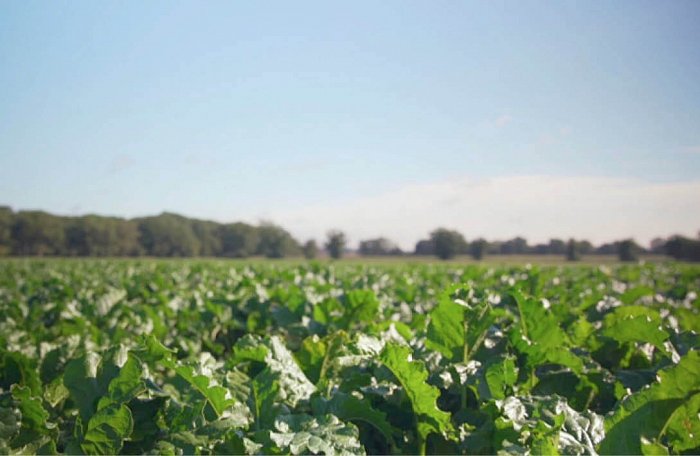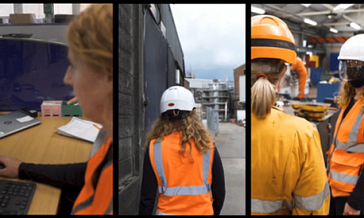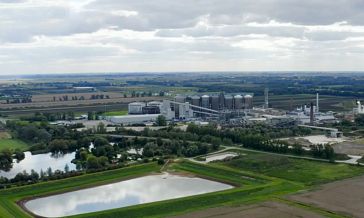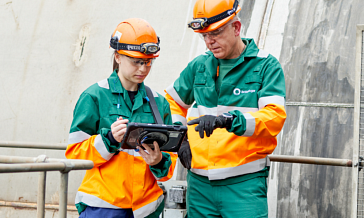
Latest news
All recent news from British Sugar
Brits consume twice as many calories on Christmas day as Great War ancestors
19 December 2014

Latest research shows how our lifestyle and food habits have changed over the last 100 years
- We’re eating twice as much as our ancestors did during the Wars – we currently consume an average 6,000kcal (calories) on Christmas day
- During WWI and WWII we were far more active too. This Christmas 37% of Brits will be staying indoors playing board games and watching TV
- Half (50%) of Brits plan on eating a traditional turkey meal on Christmas day
Research by food historian, Dr Annie Gray, combined with polling by AB Sugar, reveals the extent to which our food, drink and general lifestyle habits have evolved since WWI, particularly when it comes to Christmas Day festivities.
The polling shows how many Brits are unaware of the calories they will be consuming during Christmas Day this year; while Brits today think their calories consumption will be an average of 2,652kcal, separate research revealed that it will actually be nearer 6,000kcal. This is compared to during WWI and WWII, where people averaged a calorie consumption of 3,500kcal on Christmas Day. *
What’s more, when asked about the calories they will consume, almost half (46%) of respondents polled said they didn’t give it a thought either on Christmas Day or any other day.
Christmas dinner is one of the most traditional meals of the year and half (50%) of us will be eating a turkey meal on Christmas day. However, Brits say that as an alternative to the ‘traditional turkey’ they will be eating beef (17%), chicken or cockerel (15%) and lamb (7%). Interestingly, based on the historical research, turkey was not the majority choice main food until after WWII, with goose or beef being the more popular Christmas dish.
The research also shows that whilst alcohol was scarce during war time, it now plays a major role in our Christmas celebrations and contributes to our total calories consumed on the day. The poll reveals how a third (33%) of Brits will be drinking either red or white wine this year, a quarter (25%) enjoying the festive cheer with sparkling wine and a fifth (20%) drinking beer or lager.
And while the poll shows that over a third (37%) of Brits will be staying indoors, playing board games and watching TV on Christmas Day, our ancestors led much more physically demanding lives. Without today’s modern conveniences, even making the Christmas dinner would have required much more energy and burnt more calories according to Dr Gray.
Dr Annie Gray, Food Historian: “Our food, drink and even lifestyle habits have really changed over the years.
Back in WWI and WWII even the most manual of tasks could sometimes involve hard labour so we were certainly more active and, in fact, we were our healthiest as a nation at the end of WWII.
People living during the war era didn’t have to make so many conscious decisions to stay healthy – eating well and staying active was both a necessity and the norm. People today have so much more choice in what they eat but they don’t necessarily know how to make a healthy decision.”
And when it comes to the future, Dr Gray predicts that we’ll be eating far less meat and more vegetable options, including meat substitutes and possibly insect-derived protein. Despite dessert being a big part of the meal, the poll showed that only 29% of 18-24 year olds will eat Christmas pudding, compared to 61% of those aged 55 years old and over which, Dr Gray says, indicates that the days of the Christmas pudding may soon be over.
Dr Julian Cooper, Head of Food Science, AB Sugar: “Christmas is an enjoyable time of year, with some great food and drink treats in store. However, our research shows consumers are unaware of just how many calories they will be consuming at Christmas.
Everyone should enjoy their Christmas meal and festivities but at the same time it’s important to think about how you might balance your calorie intake, ensuring you can burn off those off those extra calories not just straight after Christmas, but throughout the year.”
To see a synopsis of Dr Annie Gray’s research, please visit the Making Sense of Sugar website www.makingsenseofsugar.com. You will also be able to view a ‘behind-the-scenes’ video of a food photo shoot with images of what our ancestors ate in WWI, WWII, as well as what the British population aim to eat today and in 20-25 years from now.
Notes to editors:
For further information, images or interviews please call:
0207 492 0975 or email press@makingsenseofsugar.com
Research by Dr Annie Gray was conducted between 14 November and 26 November 2014.
*See www.makingsenseofsugar.com for further references and source bibliography.
The online survey was conducted by OnePoll amongst 2,000 UK adults 18+ between 28 November and 1 December 2014.
About Dr Annie Gray
Dr Annie Gray is a food historian who specialises in food and dining c. 1700-1950. Her PhD thesis focused on the role of women in driving dining change. She regularly appears as a food history expert on various TV and radio shows and is a regular contributor to Radio 4’s The Kitchen Cabinet.
Dr Annie was commissioned by Making Sense of Sugar to perform research specific into our Christmas dining habits and lifestyle during WWI, WWII, the present day and the future. See Annie’s website here: http://www.anniegray.co.uk/
About Making Sense of Sugar
AB Sugar recently launched a new campaign, Making Sense of Sugar, to help inform and educate people about sugar, the role it can play as part of a healthy balanced diet, and to help people make better informed choices about what they consume.
The campaign provides information about sugar in a way which is simple, straightforward and informative, while ensuring facts are always based on robust science. It also addresses the myths around sugar and obesity and help people better understand the link between the energy (calories) they consume versus the energy (calories) they expend.
To find out more about the campaign, visit makingsenseofsugar.com and for all the latest campaign news follow @senseofsugar.
About AB Sugar
AB Sugar is one of the largest sugar producers in the world and has operations in 10 countries, from Europe to southern Africa to China, and employs around 40,000 people. The company is also involved in the developing bioethanol industry and in seed coating and enhancement technology, as well as non-sugar products including animal feed, soil conditioning and landscaping products, electricity and even tomatoes.
AB Sugar has the capacity to produce over five million tonnes of sugar and around 600 million litres of ethanol each year.
British Sugar (part of AB Sugar) is the leading supplier of sugar to the UK market and is the sole processor of sugar beet in the UK, producing more than one million tonnes of sugar at its four factories from around seven million tonnes of sugar beet.
AB Sugar is an advanced and sustainable manufacturer with a real commitment to its people. The company believes its business decisions should simultaneously benefit the environment, its stakeholders and the communities in which it operates.
AB Sugar is a wholly owned subsidiary of international food, ingredients and retail group Associated British Foods (ABF) with sales of £13.3bn and over 113,000 people in 47 countries.
For more information, visit www.absugar.com.





